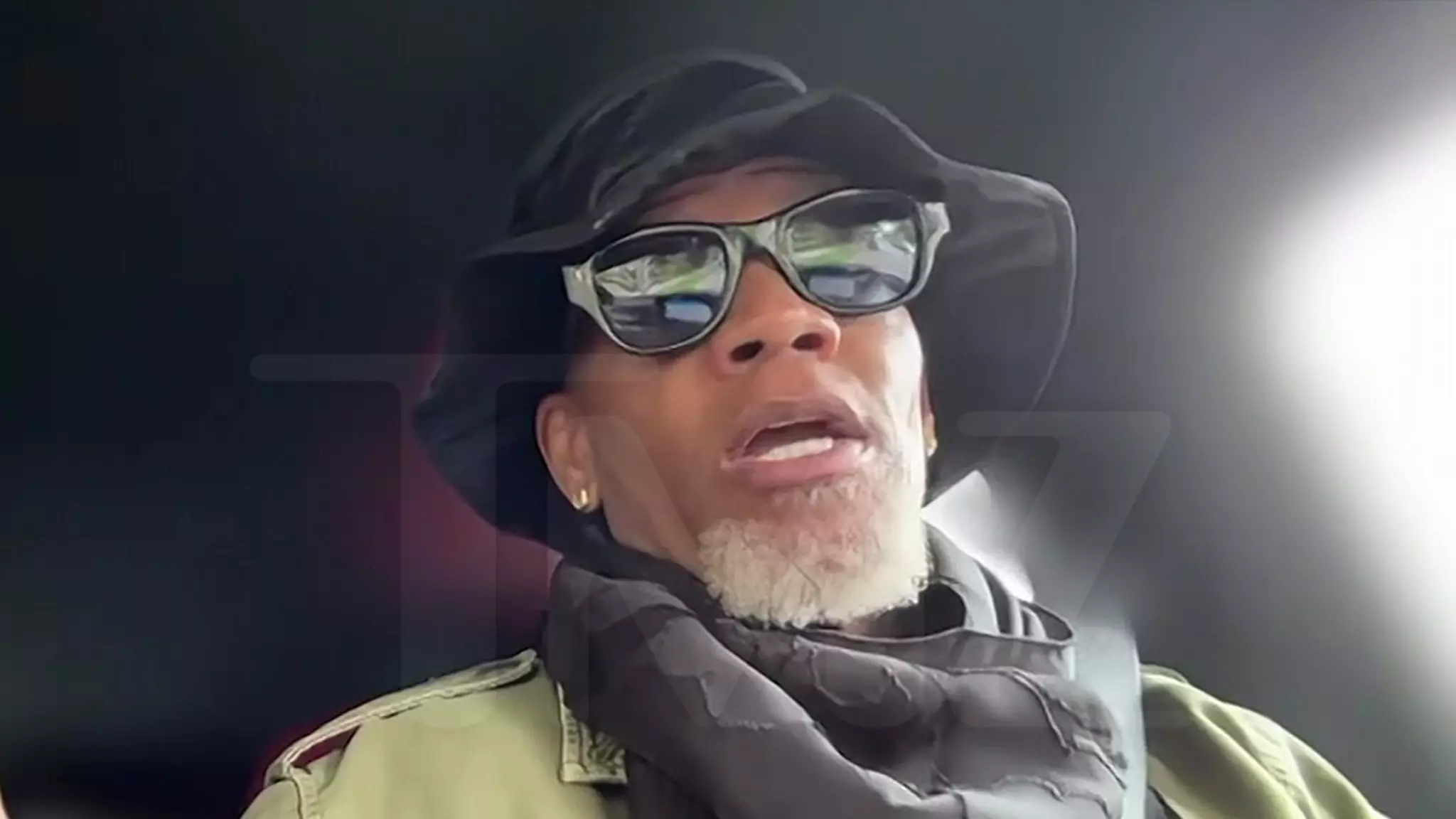D.L. Hughley, known for his insightful commentary and sharp wit, has once again highlighted a troubling aspect of contemporary American politics. His recent discussion regarding former Vice President Mike Pence receiving the John F. Kennedy Profile in Courage Award serves as a lens through which to examine the degradation of political norms in the United States. Hughley’s critique emphasizes that this accolade, awarded for Pence’s role in the certification of the 2020 election results during the January 6 insurrection, underscores just how far the nation has strayed from an ideal of governance grounded in trust and civility.
A Distorted Sense of Courage
Hughley argues that the notion of honoring Pence for simply doing his job is a stark indicator of the disarray within the nation’s political fabric. The very act of upholding the Constitution, which should be a standard expectation of public officials, has been elevated to an extraordinary feat. This reality raises uncomfortable questions about the thresholds for courage within our political system. What does it say about a democracy when performing one’s basic duties is greeted with disdain and hostility, warranting awards and accolades?
This recognition, rather than celebrating achievement, shines a light on the chaos that now permeates the political arena. Hughley points out that numerous politicians have upheld their oaths without fanfare or recognition. Yet, in the current hyper-partisan environment, even the simplest acts of integrity can become monumental. The fact that such actions are regarded as courageous reflects a profound breakdown in political decorum that many find troubling.
The Echoes of Trumpism
The comedian further elucidates his thoughts by referencing Donald Trump’s continuing influence over the Republican Party. Pence’s decision to certify the election results, rather than support Trump’s unfounded claims of electoral fraud, has placed him at odds with the very forces that shaped his political identity. Despite his principled stance, the persistence of Trumpism suggests a political climate where loyalty to a leader, rather than adherence to democratic processes, reigns supreme.
This reality highlights a significant tension: while Pence’s actions may have temporarily staved off a potential constitutional crisis, the broader repercussions linger, particularly as Trump’s influence continues to loom large. Hughley notes, with a hint of irony, that Pence’s patriotism resulted only in a “four-year pause” of Trump’s potential return, thereby questioning the true effectiveness of Pence’s actions within the larger political narrative.
A Constitutional Crisis Masked as Triumph
Pence’s own words following his award—claiming January 6 became a “triumph of freedom”—are a striking contrast to the events that transpired that day. While he attempts to portray the resilience of American institutions as victorious, Hughley contends that the very need for such resilience speaks volumes about the fragility of democracy in its current form. The alarming realization is that the need to defend the Constitution against domestic threats has become an alarming routine rather than an exception.
Hughley’s commentary acts as a clarion call, urging us to reflect on what this accolade signifies about our current political state. Are we really ready to celebrate an act of basic duty as exemplary courage? Or have we entered an era where the maintenance of democratic values represents a courage far removed from what our forebearers aspired to achieve? It’s a perilous crossroads, one where the treatment of the Constitution is no longer a matter of pride but a reflection of the profound challenges facing the nation.

